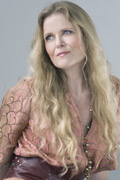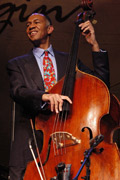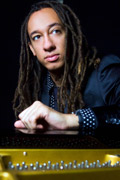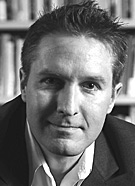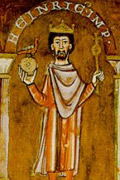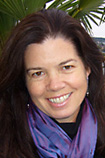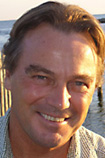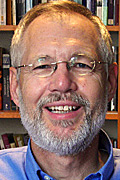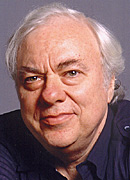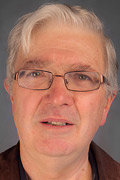A game-changer for Lawrence University.
President Jill Beck announced a $5 million gift from Lawrence graduates Tom and Julie Hurvis that will support the establishment of The Hurvis Center for Interdisciplinary Film Studies, a facility dedicated to the integration of film production into the Lawrence curriculum.
The $5 million gift from the Hurvis Charitable Foundation was a part of Lawrence’s recently concluded “More Light!” campaign that raised more than $160 million.
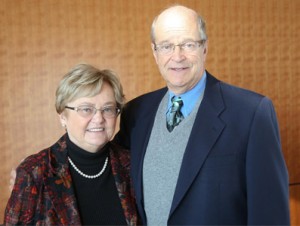
The opening of the Hurvis Center will expand the scope of Lawrence’s current film curriculum, physically and intellectually. The program currently includes interdisciplinary courses on film theory, history and analysis. The gift will create a fully functional film production studio supporting students’ creation of film and video for artistic and scholarly expression.
Beginning with its signature course, Freshman Studies, Lawrence provides a rigorous education in the traditional forms of literacy — cogent writing and oral dialogue. The enhanced film program will complement those traditions by engaging students in a third form of literacy essential for the 21st century: the visual literacy of film and video.
“Students already learn to ‘read’ film through our existing film theory and history curriculum,” said Beck. “The expanded program made possible by Tom and Julie Hurvis will enable students to learn to ‘write’ as well, producing original documentaries and creative films to express ideas, to raise awareness about issues of concern, and to share research with scholarly and community audiences.
“We are fortunate that an imaginative interdisciplinary approach to film studies has evolved and grown at Lawrence over the past many years,” Beck added. “The Hurvis gift recognizes that fact and generously provides us with the opportunity to add film production to our students’ education and integrate production into our existing program.”
Tom Hurvis, a 1960 Lawrence graduate and chairman and CEO of Old World Industries in Chicago, sees the program as a “game-changer for Lawrence.”
“It really puts the college into a different arena,” said Hurvis. “Here’s an innovation that is something new and it definitely fits with Lawrence. What else could potentially bring so many different members of the faculty together?”

Award-winning filmmaker Catherine Tatge, a 1972 Lawrence graduate, will serve as a consultant to help get the program launched, offering workshops, assisting students and faculty with specific projects, and consulting with film studies faculty on how the Hurvis gift can best be put to use in curricular development.
“Catherine has expressed enthusiasm for the existing film studies program and is eager to work with faculty on an enhanced program that reflects Lawrence’s distinctiveness,” said Beck.
With more than 25 years of filmmaking experience, Tatge brings a unique vision for the development of a program that will be integrated through diverse areas of the Lawrence curriculum.
“I’m very excited about this new program,” said Tatge, whose latest documentary film, “John Muir in the New World,” premiered on PBS’ “American Masters” series earlier this year. “As a Lawrence graduate, I know the culture of this institution. Developing this program is really going to be a process, working with the faculty and with students to help build something that is uniquely tailored to Lawrence.”
2010 Lawrence graduate Garth Neustadter composed the score for the John Muir film and won an Emmy Award in the original music composition category.
The Hurvises are looking forward to watching the evolution of a distinctive film program rooted in Lawrence’s liberal arts tradition.
“This project is open-ended,” said Julie Hurvis, who graduated from Lawrence in 1961 with a degree in studio art. “We’re excited about it becoming a reality, as people are hired and begin working on the program.”
Filmmaking at Lawrence will promote cross fertilization throughout the campus, drawing upon resources from music performance, composition and arranging, art, dance, theatre, and creative writing. It aspires to engage many academic departments by making film another way for students and faculty to disseminate disciplinary research and ideas.
“Lawrence already has very good creative synergy with the conservatory of music, with art, the theatre department and other creative areas, so the film program will be a beautiful tie-in to all of those different creative juices,” said Tom Hurvis.
“I see bringing different parts of the university together to work on different aspects of the media and cinema process so that students will leave Lawrence being media-savvy and capable of effectively communicating their ideas,” added Tatge.
The Hurvis Center will be located in the renovated lower level of the former Jason Downer Commons. It will provide more than 5,500 square feet of new academic programming space, including a 2,000-square-foot central performance and screening venue for use by film studies and other disciplines, including theatre, dance and music. The large and flexible space will promote collaboration and cross fertilization among multiple disciplines.
The gift also will support the addition of a new faculty position to develop new offerings on filmmaking and a technical position to provide expertise in maintaining equipment and instruction on how to use it.
“Lawrence is truly fortunate to have philanthropists like Tom and Julie Hurvis among its alumni,” said Beck. “They have a wonderful vision for Lawrence as one of the very best liberal arts institutions in the nation and have made landmark investments in the college to help it achieve that stature.”
Tom and Julie Hurvis’ interests in film include serving as producers of the 2009 award-winning documentary film “The Providence Effect.” Winner of two film festival “Best Documentary” awards, the film chronicles the efforts of Paul Adams to transform Providence St. Mel, an all-black parochial school on Chicago’s notorious drug-ridden, gang-ruled West Side into a first-rank college preparatory school for its African-American student body.
Founded in 1847, Lawrence University uniquely integrates a college of liberal arts and sciences with a world-class conservatory of music, both devoted exclusively to undergraduate education. Ranked among America’s best colleges, it was selected for inclusion in the book “Colleges That Change Lives: 40 Schools That Will Change the Way You Think About College.” Individualized learning, the development of multiple interests and community engagement are central to the Lawrence experience. Lawrence draws its 1,445 students from 44 states and 35 countries.
